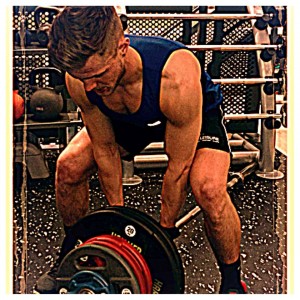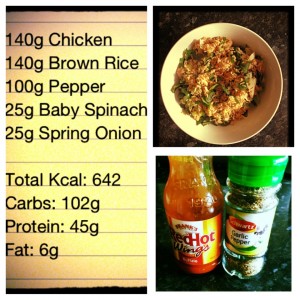Over training/Under recovering
In the latest blog post from Miami Pro fitness model competitor, Mark Cosgrove, he takes a look at over training and under recovering, giving you actionable tips to avoid this phenomena – more common in people who are new to the gym and train with such enthusiasm that they end up doing too much!
So, on to the article…
Spotting when you are over training can be one of the hardest things to do for some. I don’t like using the word much as I believe the main reason we ‘overtrain’ is more down to ‘under recovery’. Sometimes we know but choose to ignore it, “the weeks training is going well, if I stop now I’ve failed” type of attitude. But, overtraining can lead to all kinds of problems – I know, I’ve been there.
It’s happened around 3 times when I have seriously over trained to the point where I’ve woken up and not been able to move. Literally. I’m not exaggerating. I was so fatigued. I lay in bed for two full days and slept. It also took me another 6 days to fully recover, meaning I wasted 8 days in total. This could have been easily avoided if I had scheduled rest days or even lighter sessions in order to give my body sufficient time to recover.
Overtraining or under recovering is what happens when the load put upon your body is greater than its capacity to recover. Your central nervous system becomes over-taxed. In other words, you subject your body to too much and it shuts down.
The CNS, located in the brain and spinal column, is responsible for sending, receiving and interpreting information with in your body. It’s the processing centre of your body, working constantly to keep your body functioning.
When training at a constant high intensity without reasonable recovery the CNS will limit its output to protect itself, resulting in a number of negatives such as…
- Lack of motivation
- Increased fatigue
- Decrease in neural drive
- No focus, meaning your training won’t be optimal and you won’t get out of it what your hard work deserves.
There are many signs of overtraining and spotting them early can prevent a stint on the sidelines which is no good for any goal you may have. Here are just a few of the symptoms – if you’re currently suffering from any of these then it could well be you have not been recovering enough or, you’re overtraining.
- Elevated resting heart rate.
- Loss of appetite.
- Persistent soreness in muscles, tendons and joints
- Nervousness and difficulty relaxing
- Not sleeping as well as usual.
- Weakened immune system- getting ill often, not getting rid of colds etc
- General lack of motivation.
- Mood changes.
- Headaches.
- Sudden loss of weight (usually muscle).
These are the most obvious signs of overtraining. There’s plenty more though, so if you do believe that you are under recovering from your workouts take a few days off. I like to schedule a deload week where I perform lighter, less-intense workouts.
If you are feeling any of the symptoms severely do anything but train. Let your body have a full break to rest and recuperate. Importantly, you will need to sleep more! You’re not being lazy, sleep is the one of the greatest ways to help recovery. A full 8 hours is a good number to shoot for, but if you’re training particularly hard then 10 would be a much safer number. This will help and before you know it you will be back where you left off.
Remember with your training and recovery it’s about the bigger picture. Taking a few days to recover will not in anyway de-rail your progress. Having a week or 2 due to illness (caused by overtraining) is a much bigger spanner in the works. Here are a few other suggestions to help prevent it.
- Reduce workout times – 45-60 minutes is plenty, if you’re training for more than 60 minutes you’re not training hard enough, nor are you training smart enough!
- If you’re lifting weights (which you should be, men AND women) then lower the weights for a week, this is a called a de-load week as I said above.
- Schedule rest days with in your training cycle, I currently have 3 days on 1 day off, then I repeat.
- Try massage therapy, it will help relieve lactic acid accumulation with in your muscles and promote blood flow for the transportation of nutrients which your muscles will be craving.
- Make sure you are eating too quality food and drinking plenty of water to aid recovery from the inside out.
Again, there is plenty more you can do to help prevent under recovery. The best thing I can suggest is listen to your body, if its crying out at you to stop putting it through hell, then do so! It’ll be far more productive and help you achieve your health, fitness and physique goals!
For more info on my journey to the Miami Pro Fitness Model event, ‘Like’ my facebook page here.

